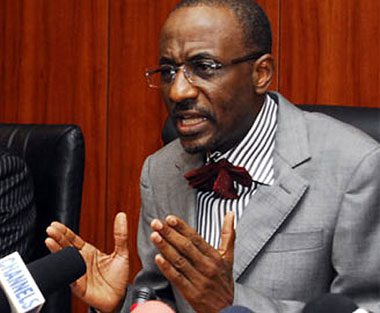THE STATE OF AFRICA: UNVEILING THE UNTOLD STORY OF THE INFORMAL ECONOMY (1) by Obele Gospel
For
sub-Saharan Africa, the Informal sector is nothing new. Indeed the types of activities carried out in
this sector has existed even prior to colonialism. Later, independence brought in the
distinction between informal Vs. formal activities as countries around the
region sought to formalize or “modernize” their economies. The focus then (and indeed to some degree
today) was rapid industrialization for much of the region. If is the informal sector – not the formal
sector – that is the growth engine. It
should be noted that around the world, about two-thirds of all employees work
in the informal sector. Thus how
government treat the informal sector has profound impacts on employment,
growth, equity and sustainability.
World Bank, 2009
The Informal sector is the part of the economy that is not
taxed, organized, through legal but not monitored by the government or included
in the GNP. The informal economy was
recognized in 1972, when the International Labour Organization (ILO) began its
pioneering work on informality in the African economy with the Kenyan
Multi-disciplinary employment missions.
ILO definitions include:
“…
the non-structured sector that has emerged in the urban centres as a result of
the modern sector’s inability to absorb new entrants…”
International Labour Organization
(1972).
“…
private unincorporated enterprises which produce at least some of their goods
and services for sale or barter, has less than 5 paid employees, are not
registered, and are engaged in non-agricultural activities including
professional or technical services.
International Labour Organization
(2002).
The informal sector is characterized
by a larger number of small-scale production and service activities that are
individually or family-oriented and use simple labour-intensive
technology. The usually self-employed
workers in this sector, have less formal education, are generally unskilled,
and lack access to financial capital. As
a result, workers productivity and income tend to be lower in the informal
sector than the formal sector.
Nonetheless, some generalizations
can be made about the causes of the informal sector’s growth in recent years
include:
·
Bias by African leaders,
international development agencies, international financial institutions to
execute and support projects in urban areas, create laws and pursue development
policies at the detriment of rural areas.
·
Recent migrants from rural areas
who are unable to find employment in the formal sector.
·
Structural adjustment policies
·
Difficulty in establishing new
firms.
·
Peace and the demobilization of
military.
Their
motivation is often to obtain sufficient income for survival, relying on their
own indigenous resources to create work.
As many household are involved in the income-generating activities,
including women and children, and they often work very long hours. They generally lack public service such as
electricity, water, drainage, transportation and educational and health
services. Others are less unfortunate,
homeless, living on pavements, work temporarily as day labourers and hawkers
under unhealthy weather condition.
With the unprecedented growth rate
of the urban population in developing countries, expected to continue and with
the increasing failure of the rural and urban formal sectors to absorb
additions to the labour force, more attention is devoted to the role of
informal sector in serving as a panacea for the growing unemployment problem.
The persistence and depth of poverty
in Africa, and especially in the sub-Saharan region, appears to be strongly
related to both the structure of employment and the very low level of
productivity. It is estimated by the ILO
in Geneva, that 48 percent of non-agricultural employment in North Africa, is
in the informal economy, and 72 percent in sub-Saharan region. In rural areas some estimate are that the
informal sector accounts for as much as 90 percent of non-agricultural employment.
“Indeed
informal sector employment in Uganda and Kenya now exceeds employment in the
formal sector and nearly 90% of the labour force in Ghana comes from the
informal sector. Also many countries
have not even collected data on the informal sector.”
African Union, 2008
All the way from Lagos-Nigeria, to
Moncef Bey – Tunisia, el hamiz – Algiers, Harare – Zimbabwe and the famous Derb
Ghalef and Derb Omar Markets in Casablanca-Morocco. Africans have resorted to the opportunities
therein in the informal market, which makes breaking out seem to be a major
development challenge.
Zimbabwe, Tanzania and Nigeria have
more than half their economies in the informal sector, while South Africa have
just 28.4 percent (below the 41 percent average for developing countries world
wide, but still more than the 18 percent in developed countries).
The informal sector entails a loss
in budget revenue by reducing taxes and social security contributions paid and
therefore the availability of funds to improve infrastructure and other public
goods and services. This invariably
leads to a high tax burden on registered labour, and of which the tax burden
would be further pushed to consumers in form of high prices of goods and
services.
Finally, if economic growth is not
associated with a movement into better employment opportunities or an
improvement in the condition of employment in informal activities, the impact
on poverty will be minimal. This issue
is central to realizing decent work, as a goal and for all workers, - to
achieving the millennium development goals, and to promoting a fair
globalization. Please stay connected for
more amazing insights… Only Africans can
save Africa. Peace!
Obele
Gospel Jesuite
CRO – Project Change
Initiative
A 21st Century
Leadership, Organizational and Economic Development Strategist
For comments, please visit
Obele Jesuite on facebook, @OBELEObele on twitter, gospel_obele@yahoo.com for email: or
contact 08130070991.




















